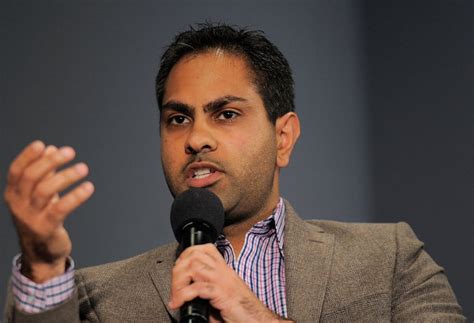Top 95 Frugality Quotes & Sayings - Page 2
Explore popular Frugality quotes.
Last updated on April 15, 2025.
Republics demanded virtue. Monarchies could rely on coercion and "dazzling splendor" to suppress self-interest or factions; republics relied on the goodness of the people to put aside private interest for public good. The imperatives of virtue attached all sorts of desiderata to the republican citizen: simplicity, frugality, sobriety, simple manners, Christian benevolence, duty to the polity. Republics called on other virtues--spiritedness, courage--to protect the polity from external threats. Tyrants kept standing armies; republics relied on free yeomen, defending their own land.
1. Turn all care out of your head as soon as you mount the chaise.
2. Do not think about frugality: your health is worth more than it can cost.
3. Do not continue any day's journey to fatigue.
4. Take now and then a day's rest.
5. Get a smart seasickness if you can.
6. Cast away all anxiety, and keep your mind easy.
This last direction is the principal; with an unquiet mind neither exercise, nor diet, nor physic can be of much use.
[T]he more public provisions were made for the poor, the less they provided for themselves, and of course became poorer . . . [taking] away from before their eyes the greatest of all inducements to industry, frugality, and sobriety, by giving them a dependence of somewhat else than a careful accumulation during youth and health for support in age and sickness.
I have never heard about any perfect marriage. They say perfect marriages are made in heaven. Nobody comes back from there so maybe it is true, but what kind of marriage will those perfect marriages be? There will be no tension, there will be no individuality in the man or in the woman. They will never collide, they will never fight. They will be too sweet to each other. And too much sweetness brings diabetes! Marriage is an institution that teaches a man regularity, frugality, temperance, forbearance and many other splendid virtues he would not need had he stayed single.
A disordered currency is one of the greatest political evils. It undermines the virtues necessary for the support of the social system, and encourages propensities destructive to its happiness. It wars against industry, frugality, and economy, and it fosters the evil spirits of extravagance and speculation.
The importation of foreigners into a country that has as many inhabitants as the present employments and provisions for subsistence will bear, will be in the end no increase of people, unless the new comers have more industry and frugality than the natives, and then they will provide more subsistence, and increase in the country; but they will gradually eat the natives out. Nor is it necessary to bring in foreigners to fill up any occasional vacancy in a country for such vacancy will soon be filled by natural generation.
I believe that the public temper is such that the voters of the land are prepared to support the party which gives the best promise of administering the government in the honest, simple, and plain manner which is consistent with its character and purposes. They have learned that mystery and concealment in the management of their affairs cover tricks and betrayal. The statesmanship they require consists in honesty and frugality, a prompt response to the needs of the people as they arise, and a vigilant protection of all their varied interests.
That no free government, nor the blessings of liberty, can be preserved to any people, but by a firm adherence to justice, moderation, temperance, frugality, and virtue; by frequent recurrence to fundamental principles; and by the recognition by all citizens that they have duties as well as rights, and that such rights cannot be enjoyed save in a society where law is respected and due process is observed.
Bad men cannot make good citizens. It is when a people forget God that tyrants forge their chains. A vitiated state of morals, a corrupted public conscience, is incompatible with freedom. No free government, or the blessings of liberty, can be preserved to any people but by a firm adherence to justice, moderation, temperance, frugality, and virtue; and by a frequent recurrence to fundamental principles.
I have three precious things which I hold fast and prize. The first is gentleness; the second frugality; the third is humility, which keeps me from putting myself before others. Be gentle and you can be bold; be frugal and you can be liberal; avoid putting yourself before others and you can become a leader among men.
[Benjamin Franklin]identified thirteen virtues he wanted to cultivate--temperance, silence, order, resolution, frugality, industry, sincerity, justice, moderation, cleanliness, tranquility, chastity and humility--and made a chart with those virtues plotted against the days of the week. Each day, Franklin would score himself on whether he practiced those thirteen virtues.
Associate yourself with men of good quality, if you esteem your reputation. Be not apt to relate news, if you know not the truth thereof. Speak no evil of the absent, for it is unjust. Undertake not what you cannot perform, but be careful to keep your promise. There is but one straight course, and that is to seek truth, and pursue it steadily. Nothing but harmony, honesty, industry and frugality are necessary to make us a great and happy nation.
1) Temperance... drink not to elevation. (2) Silence... avoid trifling conversations. (3) Order: Let all your things have their places... (4) Resolution... perform without fail what you resolve. (5) Frugality... i.e. waste nothing. (6) Industry: Lose no time; be always employ'd... (7) Sincerity: Use no hurtful deceit; think innocently... (8) Justice: Wrong none by doing injuries... (9) Moderation: Avoid extremes; forbear resenting... (10) Cleanliness: Tolerate no uncleanliness in body... (11) Tranquility: Be not disturbed at trifles... (12) Chastity (13) Humility : Imitate Jesus.
The spirit of commerce is frugality, economy, moderation, labor, ponderance, tranquillity, order, and rule. So long as this spirit subsides, the riches it produces have no bad effect. The mischief is when excessive wealth destroys the spirit of commerce, then it is that the conveniences of inequality... are felt.
One of the better ways to simplify our lives is to follow the counsel we have so often received to live within our income, stay out of debt, and save for a rainy day. We should practice and increase our habits of thrift, industry, economy, and frugality. Members of a well-managed family do not pay interest; they earn it.
Hope drives us to invent new fixes for old messes, which in turn create ever more dangerous messes. Hope elects the politician with the biggest empty promise; and as any stockbroker or lottery seller knows, most of us will take a slim hope over prudent and predictable frugality. Hope, like greed, fuels the engine of capitalism.
No man, however benevolent, liberal, and wise, can use a large fortune so that it will do half as much good in the world as it would if it were divided into moderate sums and in the hands of workmen who had earned it by industry and frugality. The piling up of estates often does great and conspicuous good.... But no man does with accumulated wealth so much good as the same amount would do in many hands.
If true, the Pythagorean principles as to abstain from flesh, foster innocence; if ill-founded they at least teach us frugality, and what loss have you in losing your cruelty? It merely deprives you of the food of lions and vultures...let us ask what is best - not what is customary. Let us love temperance - let us be just - let us refrain from bloodshed.
The best taxes are such as are levied upon consumptions, especially those of luxury; because such taxes are least felt by the people. They seem, in some measure, voluntary; since a man may choose how far he will use the commodity: They naturally produce sobriety and frugality, if judiciously imposed: And being confounded with the natural price of the commodity, they are scarcely perceived by the consumers. Their only disadvantage is that they are expensive in the levying.
I can assure you that there is the greatest practical benefit in making a few failures early in life. You learn that which is of inestimable importance that there are a great many people in the world who are just as clever as you are. You learn to put your trust, by and by, in an economy and frugality of the exercise of your powers, both moral and intellectual; and you very soon find out, if you have not found it out before, that patience and tenacity of purpose are worth more than twice their weight of cleverness.
There is a wise old saying 'Eat it up, wear it out, make it do, or do without'. Thrift is a practice of not wasting anything. Some people are able to get by because of the absence of expense. They have their shoes resoled, they patch, they mend, they sew, and they save money. They avoid installment buying, and make purchases only after saving enough to pay cash, thus avoiding interest charges. Frugality means to practice careful economy.
If war can indeed be turned into a relic, then the virtue of greed will recede further. From a given society's standpoint, one big upside of wanton material acquisition has traditionally been the way it drives technological progress-which, after all, helps keep societies strong. In the nineteenth century, Russia ans Germany had little choice about modernizing; in those days stasis invited conquest. But if societies no longer face conquest, breakneck technological advance is an offer they can refuse, and frugality a luxury people can afford.
The great blessing of private property, then, is that people can benefit from their own industry and insulate themselves from the negative effects of others' actions. It is like a set of invisible mirrors that surround individuals, households or firms, reflecting back on them the consequences of their acts. The industrious will reap the benefits of their industry; the frugal the consequences of their frugality; the improvident and the profligate likewise. They receive their due, which is to say they experience justice as a matter of routine.



























